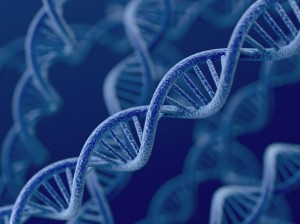To Catch a Criminal: Is Expanding the DNA Database a Crime Deterrent or a Privacy Invasion?

In a December 19 Washington Post article, “To Deter Criminals, Expand DNA Databases Instead of Prisons,” Keith Humphreys writes that expanding criminal DNA databases is a cost effective and efficient approach to crime determent. To those who say they’ll gladly offer a sample because they have nothing to hide, please note: DNA analysis is a very powerful tool and is given a lot of weight in cases of rape and murder. DNA evidence can better help investigators to find the perpetrators of crime, but it is not a foolproof forensics procedure. The analysis of forensic evidence can be malignantly manufactured to create profile matches, or worse, your DNA can be used to frame and implicate you in a crime you did not commit.
Humphreys, a professor of psychiatry at Stanford University, suggests that the invasion of privacy is warranted for DNA profile collection, given the cost-reduction benefit to criminal deterrence efforts here in the United States. With the privatization of US prisons turning our justice system into a money-making industry for correctional institutions management companies, it’s difficult to argue that expanding the DNA database is not a better alternative to opening more prisons. The truth is neither are good options.
The problem lies in the many ways DNA samples can be abused. China’s authoritarian regime is currently undertaking a massive effort to collect millions of DNA profiles from its minority population. Authorities are collecting biometric data from the Uyghur population (a Turkic minority ethnic group) as part of a new identification card system. This intricate DNA database could lead to discriminatory profiling based on family lineage, which is especially concerning given the treatment of ethnic minorities in China, most notably the Uyghurs.
China has a long history of criminalizing its ethnic minority groups, so expanding the Chinese DNA profile database has huge implications for the human rights of Chinese citizens. International human rights norms require that medical tests be conducted only on informed and consenting individuals. The mandatory collection of DNA in China, however, is being performed under the guise of a health care program. Local health authorities are responsible for collecting all of the blood samples and DNA.
Any country, no matter how democratic it may seem, is capable of committing human rights violations given the technological ability and lack of preventive foresight. Cost-effective criminal justice reform does not need to be accomplished by way of an egregious invasion of privacy. We should think long and hard about the ethical implications of an expanding DNA database in the United States, lest we allow our right to privacy to be nullified-giving police free reign of our most personal and unique identifying code.
The best kind of crime deterrence comes from addressing the systemic drivers of criminal activity rather than working harder to find the criminals, which can create a dangerous feedback loop.
